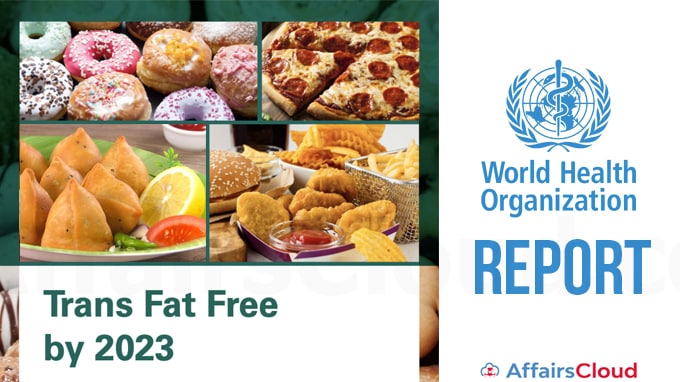 In accordance with the report titled, “Countdown to 2023: WHO report on global trans-fat elimination 2020” released on September 8, 2020, so far 58 countries have introduced laws that will protect 3.2 billion people from the harmful substance by the end of 2021. Meanwhile more than 100 countries still need to take actions to remove these harmful substances from their food supplies including India, the country with most coronary heart disease deaths due to trans fats.
In accordance with the report titled, “Countdown to 2023: WHO report on global trans-fat elimination 2020” released on September 8, 2020, so far 58 countries have introduced laws that will protect 3.2 billion people from the harmful substance by the end of 2021. Meanwhile more than 100 countries still need to take actions to remove these harmful substances from their food supplies including India, the country with most coronary heart disease deaths due to trans fats.
- To achieve a world free of industrially produced trans fats by 2023, WHO recommended that countries should set mandatory limits for industrially produced trans fats to 2% of oils and fats in all foods or to ban partially hydrogenated oils (PHO).
- WHO recommends that trans fat intake be limited to less than 1% of total energy intake, which translates to less than 2.2 g/day with a 2,000-calorie diet.
Key Points:
-Consumption of industrially produced trans fats are estimated to cause around 500,000 deaths per year due to coronary heart disease
–15 countries account for approximately two thirds of the worldwide deaths linked to trans-fat intake. Of these, four (Canada, Latvia, Slovenia, United States of America) have implemented WHO-recommended best-practice policies since 2017, either by setting mandatory limits for industrially produced trans fats to 2% of oils and fats in all foods or banning partially hydrogenated oils (PHO).
-The remaining 11 countries (Azerbaijan, Bangladesh, Bhutan, Ecuador, Egypt, India, Iran, Mexico, Nepal, Pakistan, Republic of Korea) still need to take urgent action
India’s story:
-In 2011, India passed regulations that set aTrans fatty acids (TFA) limit of 10% in oils and fats, which was further reduced to 5% in 2015.
-In December 2018, the Food Safety and Standards Authority of India (FSSAI) proposed reducing this limit to 2% and eliminating industrially produced TFA in the food supply by 2022.
-In August 2019, the FSSAI proposed aligning India’s regulations with global best practice and notified for public comment draft regulations that apply the 2% TFA limit to all food products by January 2022.
What are trans fats?
Industrially produced trans fats are contained in hardened vegetable fats, such as margarine and ghee, and are often present in snack food, baked foods, and fried foods. Manufacturers often use them as they have a longer shelf life and are cheaper than other fats. But healthier alternatives can be used that do not affect taste or cost of food.
Recent Related News:
On August 25, 2020 the African Continent was declared free of wild polio by the independent body, the Africa Regional Certification Commission (ARCC), which is responsible for certifying the eradication of wild poliovirus in the World Health Organization (WHO) African Region.
About World Health Organization (WHO):
Director-General– Dr Tedros Adhanom Ghebreyesus
Headquarters– Geneva, Switzerland




